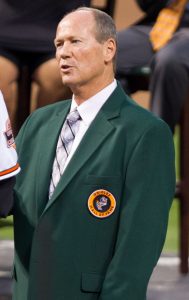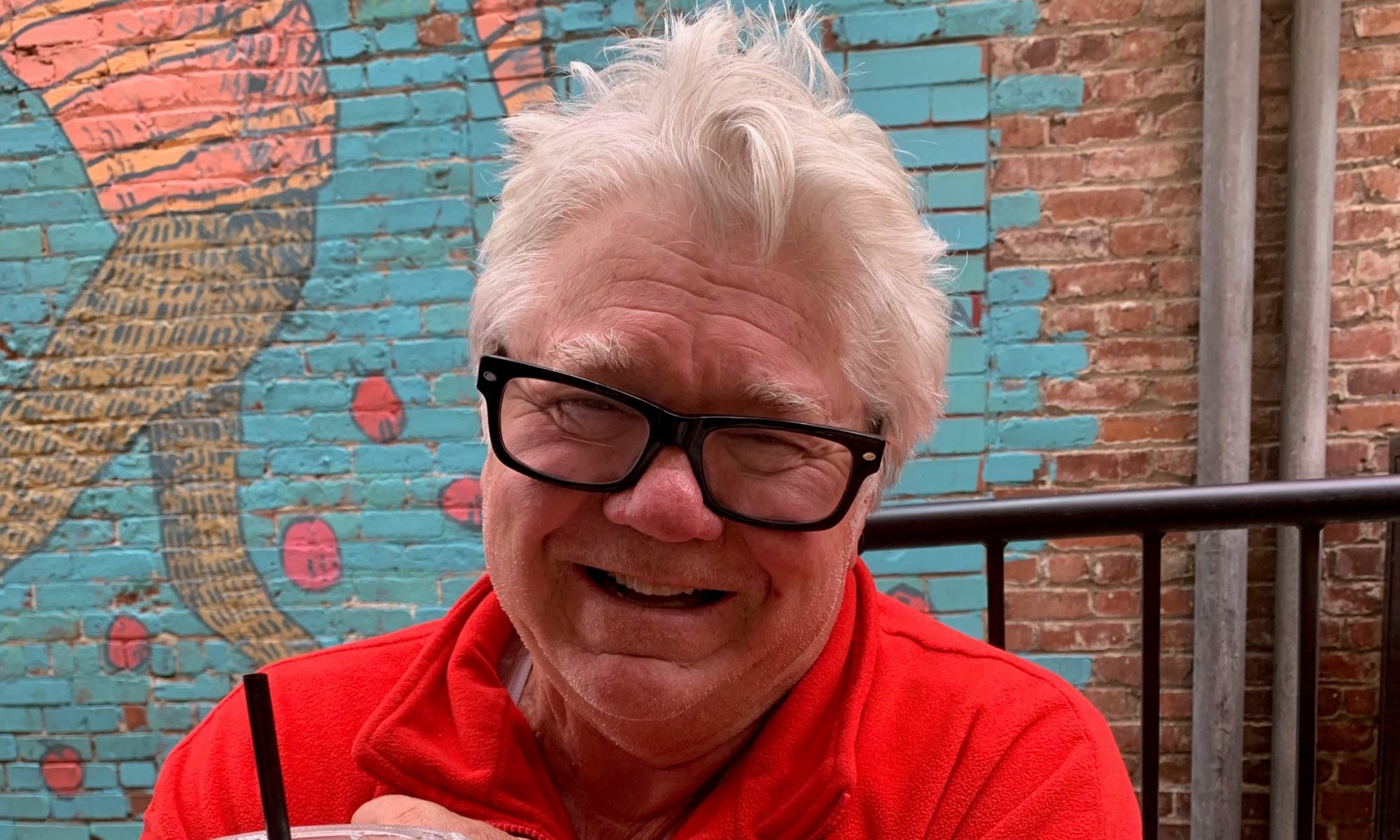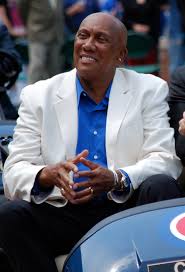A Redlands Connection is a concoction of sports memories emanating from a city that once numbered less than 20,000 people. From pro football’s Super Bowl to baseball’s World Series, from dynamic soccer’s World Cup to golf’s and tennis’ U.S. Open, major auto racing, plus NCAA Final Four connections, Tour de France cycling, more major tennis like Wimbledon, tiny connections to that NBA and a little NHL, major college football, Kentucky Derby, aquatics and Olympic Games, that sparkling little city sits around halfway between Los Angeles and Palm Springs on Interstate 10. – Obrey Brown
Retired major league ballplayer Rich Dauer sat beside me on a first base bench just after minor league San Bernardino Spirit finished playing an intrasquad game under a dimly-lit diamond at Redlands Community Field.
It was April 1987.
Thirty-one years later, Dauer would be taking part in a pre-game ceremony with Major League Baseball’s newly-crowned world champion Houston Astros — an awfully long way from those early minor league coaching days in San Bernardino.
Thirty-eight years later, Dauer died.
But on that date in 1987, something new was taking place. The California League had just expanded to, of all places, San Bernardino. Less than two decades before that, Dauer’s prep side, Colton High School, came to play at Redlands.
“I remember playing here,” Dauer said, referring to Community Field, “in high school.”
In 1983, Dauer played second base on that 1983 Baltimore Orioles’ World Series championship team, whose teammates were future Hall of Famers, Eddie Murray, Jim Palmer and Cal Ripken, Jr.
He was homegrown at Colton, a 1970 graduate. On to San Bernardino Valley College. Then it was onto USC, where he was a two-time All-American third baseman, helping lead those Trojans to win College World Series titles in both 1973 and 1974. Yes, Baltimore. That team, its roster dropping with older players like Brooks Robinson, Boog Powell and Mike Cuellar, an already traded Frank Robinson, Dave McNally and Don Bufurd, shortstop like Mark Belanger, plus Dave Johnson, Don Baylor, plus future all-star Bobby Grich. Those Orioles made Dauer a No. 1 pick in that 1974 draft.
This guy had been around.

Spirit management knew where many of their fans might come from to show up at Fiscalini Field, located on Highland Ave. in San Bernardino. Those fans were Redlands.
Showing up at Community Field was a perfect public relations move. The Spirit could sell a lot of tickets to those folks. With hitting coach, Jay Johnstone, sitting nearby, Dauer reflected on minor league ball players.
“These guys,” he said, motioning out to those Class A players, “aren’t that far away from the major leagues.”
It was quite a proclamation. These were minor leaguers, Rich, I’d told him. He shook his head in disagreement.
“All these guys,” he said, “are just young. They need experience. They can throw just as hard, hit it just as far … as any major leaguers. They just need to get consistent. That’s what will keep them out of the majors. If they’re not consistent.”
There were some future major leaguers on that Spirit roster – not to mention a few past big-leaguers.
Todd Cruz and Rudy Law, plus Terry Whitfield, pitchers Andy Rincon and Craig Chamberlain – all of whom showed up in a major league uniform before landing with San Bernardino. Cruz, in fact, was Philadelphia’s shortstop in that 1983 World Series duel with Dauer’s Orioles.
Law played against Dauer’s Orioles in that year’s 1983 American League playoffs when Baltimore knocked off the Chicago White Sox. All those ex-MLB players were playing out their careers.
Another Spirit player, infielder Mike Brocki, had torn apart Redlands High in a CIF soccer playoff match a few years earlier – scoring three goals in a 6-0 win at Walnut High School. For the Spirit in 1987, Brocki hit two HRs and batted .233.
Let’s not forget another Spirit infielder, Leon Baham, who would eventually become one of Redlands’ top youth baseball coaches in years ahead. Baham wound up hitting .279 with 8 HRs that season.
Throw in Ronnie Carter, a Fontana product who was an NCAA Division 3 All-American at the University of Redlands a couple years earlier. Hoping for a pro career, Carter hit .213 with 4 HRs over 164 at-bats for a Spirit squad that was filled by plenty of guys that never wound up at baseball’s top spot.
Dauer sat over all of them, perhaps lining himself up for a lengthy future in MLB as a coach. Curiously, he never drew amn MLB manager’s assignment, coaching at Kansas City, Cleveland, Milwaukee, Colorado and, finally, Houston.
Dauer spent as much time as I needed on that Community Field bench after playing the game that night. Plenty of local youths showed up to watch this split-squad game.
Pitchers fired seeds.
Hitters took big cuts.
Baserunners seemed quick, fast.
Fielders made it look easy.
All of that above were descriptions by Dauer. Three decades later, Dauer was pulling himself to Houston’s mound at Minute Maid Park. It was April 2, 2018. He threw out the first pitch.
For the previous three seasons, he had coached first base as the Astros made a dramatic move toward becoming contenders. When Houston beat the Dodgers in a thrilling 7-game series the previous fall, Dauer was back in familiar territory.
MAJOR NOTE: YES. YES. YES. WE KNOW. HOUSTON PLAYERS EVENTUALLY GOT DEALT WITH FOR CHEATING TO WIN THAT SERIES. A MANAGER GOT FIRED AND PLAYERS WERE SPOTTED IN CHEATING. NOTE THAT, AT LEAST. DAUER NEVER GOT NAMED IN THAT DREARY MOMENT, OR TWO.
Tragedy struck at their World Series parade. Dauer suffered a head injury, resulting in emergency brain surgery. It brought his coaching career – 19 years strong – to a premature conclusion.
He was the perfect selection to throw out that first pitch at Minute Maid.
Dating back to that 1987 season in San Bernardino, it was his season to run things as a manager, also coaching. His playing career concluded in 1985. It should be noted that neither of those future Hall of Fame teammates, Ripken, Jr., Murray or Palmer, had ever played California League ball.
Dauer cut his teeth as a manager in that historical assemblage of minor league cities. At long last, California League ball eventually surfaced in various Southern California cities.
San Bernardino had joined the Bakersfield Dodgers, Fresno Giants, Modesto A’s, Palm Springs Angels, Reno Padres, Salinas Spurs, San Jose Bees, Stockton Ports and the Visalia Oaks. Truth is, the Salinas Spurs had moved to San Bernardino, adopting the Spirit name.
Here was Dauer, back in Redlands after a well-traveled baseball career. A few hundred had bothered to show that night. That ex-Oriole player seemed to be the perfect fit as the Spirit’s manager. Local product? Yeah. Ex-major leaguer? Ex-collegiate success story? A starter at a winning World Series? No wonder he’d been hired at San Bernardino.
Dauer played over 1,100 major league games, 984 career hits, batted .257 in 10 seasons, playing at Baltimore’s World Series — losing to Pittsburgh in 1979, then winning against Philadelphia in 1983. Two seasons later, 1985, was his final playing season. By 1987, well, he was managing a minor league team not affiliated with a single MLB organization.
“When I was growing up in Colton, it never occurred to me,” said Dauer on that April 1987 night, “that there’d ever be a minor league team in San Bernardino.” Funny thing was that he became its first-ever manager.

